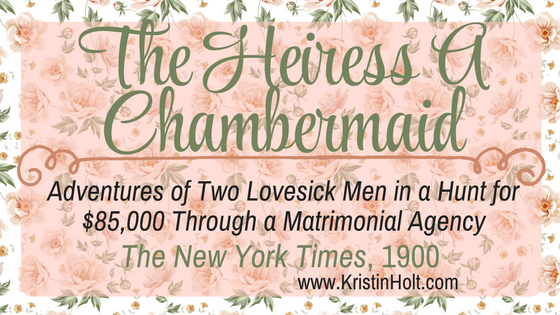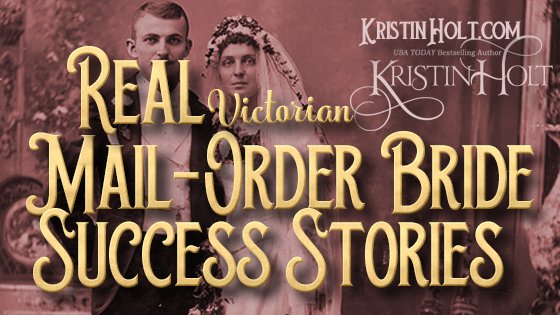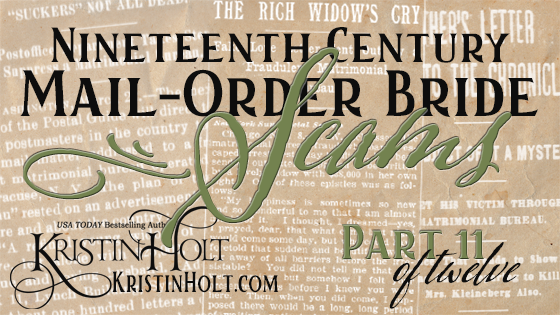
by Kristin Holt | Jun 16, 2017 | Articles
Scams involving fraudulent matrimonial companies abounded in the nineteenth century. Vintage newspapers often reported circumstances, chastised the foolish hearts who sent money to their correspondent, and insisted that no man or woman worth marrying needed to resort to the mail or an agency. This article, titled the same (as my post) was originally published in The New York Times, January 21, 1900, and details the circumstances of a purported “heiress”, gushing love letters on scented stationery, her two lovesick swains, the Manhattan matrimonial agency, and the judge’s decree.

by Kristin Holt | Mar 21, 2016 | Articles
After a 12-part series consisting of lengthy blog posts covering many (but far from all) scams reported in Nineteenth Century Mail-Order Bride situations, is it possible to believe anyone found success in such a venture?
It’s true! While happiness might not garner front-page news stories, happy mail-order bride marriages did occur–more often than they ended in disaster. This article contains six historically documented SUCCESS stories!

by Kristin Holt | Mar 18, 2016 | Articles
Flourishing in Our Midst are “Matrimonial Agencies” Which Seem to Need Attention:
Trysting Places for fools, Old and Young Which Can Be Dispensed With.
One Institution Investigated, the Vile Character of Which its Proprietors Do Not Deny.
The original newspaper article appeared in The Inter Ocean Newspaper, Chicago, Illinois, 28 August 1887.

by Kristin Holt | Mar 15, 2016 | Articles
A parade through historical newspapers taking a look at the wild and colorful history of one Charles H. Rowan, proprietor of a matrimonial agency in Milwaukee, Wisconsin in the late 1890’s. He was accused, arrested, tried, found not-guilty, allegedly bribed government officials, retried–and the story doesn’t end there.

by Kristin Holt | Mar 9, 2016 | Articles
One common thread through all Articles in this series (Nineteenth Century Mail-Order Bride SCAMS) is the criminal’s intention to capitalize on their victims’ loneliness and desire for love and companionship.
Some brides-elect and grooms-elect actually had their intellect about them enough to recognize when things weren’t quite right (even if fraud was not involved in one out of three incidences)… and made prudent decisions about their course of action.













